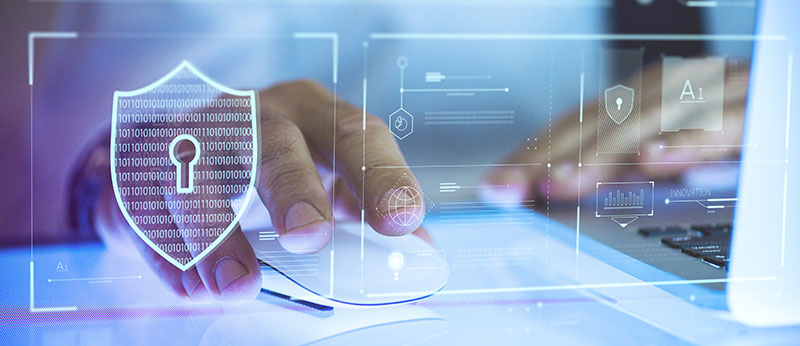Whether you were early to the party or are just getting started selling cyber liability insurance, one thing is for certain: things are changing! Rates are increasing, especially if the business has had a claim. Unfortunately, experts believe this is not a temporary phenomenon and anticipate rates going up even more in the next few months.
We know capacity restrictions are going down. Companies that were willing to write $5 or $10 million limits a few months ago are now only offering $1 or $3 million. There are new supplementals that are needed to address ransomware. You may be hearing many new terms you may not be familiar with such as MFA, air-gapped backups, email filtering. And you may be asking yourself: what are these?
We want to be your go-to resource for your clients’ cyber insurance, so we want to help you better understand the product and the market. Here you will find more information on the terms listed above.
MFA (Multi-Factor Authentication) is an electronic authentication method that requires a user to provide two or more verification factors to gain access to a website, application, computer system, etc. Rather than just asking for a username and password, MFA requires one or more additional verification factors such as a security code sent to a smartphone, a secure USB key, or biometrics such as fingerprints, facial recognition etc.
The goal of MFA is to create a layered defense that makes it more difficult for a bad actor to access a target or information. If one factor is compromised or broken, the actor still has at least one or more barriers to breach before they successfully acquire the information.
Air-Gapped Backups are a backup of critical systems and information stored offline, disconnected, and inaccessible from the internet. A backup is no good if the bad actor can get to it or the information in it. Air-gapped backups give the bad actor a cold shoulder by keeping the information in cold storage.
This technique is a backup and recovery strategy. What is an air gap? It is the physical distance (also known as an air wall) that makes it difficult for bad actors to remotely access a business’ information. Simply put, if a computer, network or device is isolated from the public internet or a LAN, it cannot be hacked.
Email Filtering is software that scans all incoming emails looking for spam, phishing, malicious links, or code, etc. It helps to catch most of the unwanted and/or malicious emails. Though the filter is a great tool, employee training is necessary to find emails the software may have missed. No email filter is perfect, which is why training associates to identify what methods bad actors use is critical.
Our Professional Liability team is equipped to explain the changes in the cyber market and help you provide the right coverage for your clients. We can layer excess coverage to get them to the level they need. We are continuing to add markets to better assist us in finding the best option for you and your insureds. Also, we have an online comparative rater that is a great indication tool when you are quoting cyber business.
All we need is the business name, address, website & revenue, and we can get indications from several leading carriers, complete with FAQs and claims scenarios, for most of your insureds. You can even receive 20 percent commission if you do the quoting yourself!
Do you have a tough risk, or are you looking for excess cyber? Give one of our brokers a call today to discuss what options we have available!
